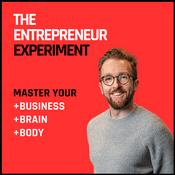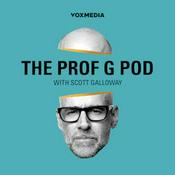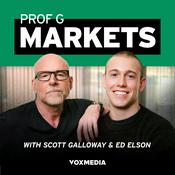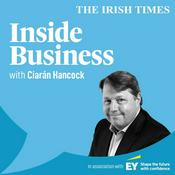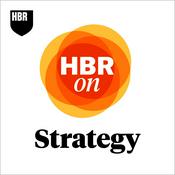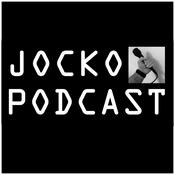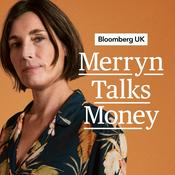44 episodes

A Founder’s Guide to Pivoting Without Killing the Company | Misha Esipov
08/1/2026 | 1h 3 mins.
Misha Esipov is the co-founder and CEO of Nova Credit. In this episode of The Eric Ries Show, I talk with Misha about what it takes to build a company inside one of the hardest parts of finance to break into.Misha immigrated to the United States from the Soviet Union as a child and watched his parents rebuild their lives from scratch. Years later, after a conventional path through math, finance, and business school, that experience resurfaced as a question that wouldn’t let go. Why do capable people lose access to credit simply because they cross a border?Nova Credit began by tackling that problem directly, starting with international students and immigrants who were being shut out of the system. Then the pandemic hit. Immigration stopped, and the company’s core market disappeared almost overnight.Misha shares what it was like to lead through that moment, how crises clarify where leaders should focus their energy, and how Nova Credit found a way forward without abandoning its original purpose.If you’re interested in entrepreneurship and what it really takes to build something that lasts, this conversation is for you.—Brought to you by: Framer: Build better sites, faster at https://www.framer.com/design Use code "ERIC"—Where to find Misha Esipov: • LinkedIn: https://www.linkedin.com/in/mishaesipov • X: https://x.com/MishaEsipov —Where to find Eric:• Newsletter:https://ericries.carrd.co/ • Podcast:https://ericriesshow.com/ • YouTube:https://www.youtube.com/@theericriesshow —In This Episode We Cover:(00:00) Intro(01:47) How Misha immigrated to the United States and found his path to entrepreneurship (03:30) Summers in the Soviet Union and why so many scientists left (06:01) Why Misha studied math and entered finance (07:06) What Misha noticed was different when he moved to the West Coast(08:22) How Nova Credit got started and why international students couldn’t access credit(12:03) Steve Blank’s approach to interviewing (13:11) Why Nova Credit intentionally started with a small market(15:52) What credit bureaus do and what it’s like entering a highly regulated industry(18:00) The leap of faith required to build this kind of business(22:16) What inspired Misha to take the leap(24:13) How the pandemic upended Nova Credit’s business(28:01) How Nova Credit responded when immigration came to a halt(31:00) What it was like trying to rebuild while losing momentum and people(36:24) How customer conversations guided the rebuild(38:37) Why Nova Credit added a new focus without abandoning the original(41:32) How Nova Credit’s products came together as a platform(43:13) What Nova Credit’s evolved mission became(45:05) How trust is built with consistency (47:51) Where Nova Credit is today(49:29) Why Nova Credit focuses on principles over politics(52:20) The importance of building for the long term (53:47) Why consistency only works when paired with value and mission(59:57) Misha’s advice for aspiring entrepreneurs —You can find episode references at https://www.ericriesshow.com/—Production and marketing by Pen Name.Eric may be an investor in the companies discussed.

Escaping the Zero-Sum Economy: A New Model for Local Prosperity | Zita Cobb
11/12/2025 | 1h 24 mins.
Zita Cobb grew up on Fogo Island, a remote fishing community off the coast of Newfoundland that operated for centuries without cash. Her childhood was shaped by a deep sense of place, the collapse of the inshore fishery, and a belief that communities survive through mutual care. When she left to study business, and later helped build JDS Uniphase into one of the most successful high-tech companies of its era, she carried those ideas with her. The rise and fall of the telecom bubble gave her a front-row view into what happens when profit and speed outrun purpose, sending her searching for a different model of development.In this episode of The Eric Ries Show, I sit down with Zita to talk about that journey and the philosophy that guides her work today. We discuss why she believes business is a tool for solving real problems and how communities can reclaim agency by understanding their own assets. Zita explains how Shorefast grew into a holistic set of enterprises on Fogo Island, including the Fogo Island Inn, which reinvests all surpluses into local culture and economic development. We talk about how communities can build their own pathways to development and why Zita believes lasting change begins close to home.—Brought to you by: Framer: Build better sites, faster at https://www.framer.com/design Use code "ERIC"—Where to find Zita Cobb:• LinkedIn: https://www.linkedin.com/in/zita-cobb• Website: https://shorefast.org —Where to find Eric:• Newsletter:https://ericries.carrd.co/ • Podcast:https://ericriesshow.com/ • YouTube:https://www.youtube.com/@theericriesshow —In This Episode We Cover:(00:00) Intro(02:15) How her father nudged her to leave Fogo Island(04:46) What life was like growing up on Fogo Island(08:37) A short history of Fogo Island(11:15) Leaving home to recover from tuberculosis(13:15) The experience of leaving for university(15:04) Early challenges at university(16:17) What education looked like on Fogo Island(18:01) How adapting to modern life shaped Zita’s systems thinking(20:24) Zita’s travels and early roles at Texaco and Shell(22:30) How Zita got into tech (24:05) How Zita learned that technical possibility alone is not enough(26:57) Joining JDS and taking it public (30:54) The rise and fall of the telecom bubble (34:08) Why taking JDS public felt like a mistake and what she learned about putting profit first(38:52) Zita’s father’s legacy (41:45) Why Zita spent five years sailing after ending her tech career(44:47) Zita’s work distributing radios in Rwanda (46:32) Why she went back to Fogo Island to spark economic development (49:26) The beginnings of Shorefast(53:11) How the ownership model protects Shorefast’s mission from the pitfalls of money(56:29) An overview of Fogo Island Inn and how its local-first mission spread (1:03:32) Why Shorefast chose the harder path and paid deep attention to details(1:08:18) What community means(1:12:09) How Shorefast Institute models a new approach to investing for development(1:16:53) Learnings from The Third Pillar (1:18:05) Why Shorefast created the economic nutrition label —You can find episode references at https://www.ericriesshow.com/—Production and marketing by Pen Name.Eric may be an investor in the companies discussed.

The Ultimate Guide for Creating Products People Trust | Seth Goldman (Honest Tea)
20/11/2025 | 1h 3 mins.
Most companies scale by cutting corners. Seth Goldman built a brand by refusing to.Seth is one of the founders of Honest Tea, a longtime chair at Beyond Meat, and the cofounder of Just Ice Tea. His career has been defined by a belief that business can be a force for human and environmental good. From a thermos of tea brewed in his kitchen to national distribution and acquisition by Coca-Cola, he has spent decades exploring how values can live inside systems built for profit.In this episode of The Eric Ries Show, I sit down with Seth to talk about the full story of Honest Tea, from its founding to its sale and eventual shutdown, and how those experiences shaped his approach to building again. We discuss how trust and long-term relationships helped him rebuild quickly, what it takes to embed purpose in supply chains, and why he believes even B Corp standards do not go far enough.—Brought to you by: Framer: Build better sites, faster at https://www.framer.com/design Use code "ERIC"—Where to find Seth Goldman:• LinkedIn: https://www.linkedin.com/in/seth-goldman-234bb7124• X: https://x.com/HonestSeth—Where to find Eric:• Newsletter:https://ericries.carrd.co/ • Podcast:https://ericriesshow.com/ • YouTube:https://www.youtube.com/@theericriesshow —In This Episode We Cover:(00:00) Intro(02:03) Seth’s early career in politics and how he saw business as a faster path to change(07:40) The early ideas he explored before landing on tea(11:30) How Seth connected tea to an ethical, fair-trade mission(14:31) How Honest Tea aligned profit with purpose(17:56) Honest Tea’s role in expanding organic and fair-trade sourcing(18:50) How Seth got Whole Foods on board(21:40) The next steps in scaling the business(22:27) The value of the in-person pitch (24:20) When Whole Foods’ local buyers could still take a chance on new brands(25:46) The case for mission transmission (27:05) How Honest Tea raised money from friends and family to major corporations(29:15) How the Coca-Cola deal came together(32:27) How a kids’ juice box carried Honest Tea’s mission forward(34:51) The end of Honest Tea and the start of Just Iced Tea(41:03) How existing relationships and lean habits helped Just Iced Tea move faster(44:30) The magnetic power of a shared mission to attract teams, partners, and customers(48:42) Why trust is the most valuable asset a company can build (51:15) What the Purpose Pledge is and how it raises the bar for ethical business(53:42) Why great products and purpose are not mutually exclusive(58:29) The story of Tony’s Chocolonely and Seth’s role as a mission guardian (1:01:40) Seth’s parting advice —You can find episode references at https://www.ericriesshow.com/—Production and marketing by Pen Name.Eric may be an investor in the companies discussed.

How the Former U.S. CTO Built a $3B Healthcare Company Powered by Love | Todd Park
06/11/2025 | 1h 32 mins.
Most companies optimize for profit. Devoted Health was built to serve people.In this episode of The Eric Ries Show, I sit down with Todd Park, co-founder of Devoted Health and former U.S. Chief Technology Officer, to explore what it looks like to design a company for human flourishing at scale.Todd shares how Devoted earned one of the highest trust scores in the industry and how he and his brother, Ed, built a business that treats every member like family. We talk about what it takes to operationalize love inside a system as complex as healthcare and how Devoted never saw any problem as outside its mission. In our conversation today, we talk about: • What it means to have love as an operational framework • How Devoted’s unambiguous mission became a superpower for alignment and trust• The formula Todd uses to define what world-class healthcare really means• Why Todd believes hard problems belong inside the company’s mission, not outside it• The role of trust as both Devoted’s core metric and its greatest moat• Lessons from Howard Schultz on scaling culture • What it takes to design an ecosystem where business, technology, and community all serve the same goal• And more—Where to find Todd Park:• LinkedIn: https://www.linkedin.com/in/todd-park-3232573• X: https://x.com/Todd_Park44 —Where to find Eric:• Newsletter:https://ericries.carrd.co/ • Podcast:https://ericriesshow.com/ • YouTube:https://www.youtube.com/@theericriesshow —In This Episode We Cover:(00:00) Intro(03:04) How Todd turned Devoted Health’s founding vision into a full-stack healthcare system(13:09) How Devoted’s virtuous performance cycle turns love into trust in action(20:51) Guide: the guardian angels who embody Devoted’s mission(29:21) How loyalty drives Devoted’s word-of-mouth growth(31:02) Why Devoted’s marketing materials don’t mention love(32:27) Harder is easier: Why Devoted built a full-stack healthcare system (37:54) The four powers ‘harder is easier’ unlocks(46:57) The case for radical transparency with your investors(51:20) The elements of alignment and the power they unlock (55:13) Howard Schultz’s advice for scaling culture (1:05:23) A story from Starbucks about creating culture(1:06:50) How Devoted addresses different determinants of health through separate entities(1:13:00) Inside Devoted’s Elders Councils (1:19:43) Building mission protection into Devoted’s DNA through founder control(1:25:55) Final thoughts from Eric and Todd—You can find episode references at https://www.ericriesshow.com/—Production and marketing by Pen Name.Eric may be an investor in the companies discussed.

The G.O.A.T.s of Kindness on Bootstrapping a Purpose-Driven Company | Dr. Brent Ridge & Josh Kilmer-Purcell
23/10/2025 | 1h 1 mins.
Most companies talk about purpose. Beekman 1802 made it their operating system.In this episode of The Eric Ries Show, I sit down with Dr. Brent Ridge and Josh Kilmer-Purcell, co-founders of Beekman 1802, to explore how a small act of compassion grew into a multimillion-dollar skincare brand rooted in community and purpose.After losing their Manhattan jobs during the 2008 recession, Brent and Josh moved to a farm in upstate New York and agreed to take in 80 homeless goats from a neighbor. That decision led to their first product, a bar of goat milk soap, and to a philosophy of entrepreneurship built on kindness and long-term thinking.Together, we talk about scaling a values-driven company, turning The Amazing Race into PR that fueled their growth, and how to make purpose authentic instead of performative. We also explore why kindness and discipline can coexist, and how the best brands instill a sense of belonging. —Where to find Dr. Brent Ridge: • LinkedIn: https://www.linkedin.com/in/brent-ridge-md-0641791/• Facebook: https://www.facebook.com/brent.ridge.12/Where to find Josh Kilmer-Purcell: • LinkedIn: https://www.linkedin.com/in/josh-kilmer-purcell-956b0b10/• Facebook: https://www.facebook.com/josh.kilmerpurcell.5/—Where to find Eric:• Newsletter:https://ericries.carrd.co/ • Podcast:https://ericriesshow.com/ • YouTube:https://www.youtube.com/@theericriesshow —In This Episode We Cover:(00:00) Intro(02:18) The Beekman 1802 origin story (04:25) How goat milk soap became their first product and sparked research on skin health(05:36) How Brent and Josh partnered with a local soap maker (06:58) Why Brent and Josh bootstrapped Beekman 1802 and how they found their market(12:48) How Brent and Josh enlisted neighbors to fulfill their first national order(16:58) A heuristic for decision making (18:01) The power of thinking beyond transactional relationships (19:30) Why Brent and Josh see kindness as a competitive advantage (22:28) How to stay kind without getting taken advantage of(24:20) The business upside of Cloudflare’s decision to give its product away(25:23) The step-by-step approach Beekman 1802 used to scale without outside funding(28:33) How Brent and Josh made kindness a core operating principle at Beekman 1802(35:04) Why authenticity can’t be bought and purpose shouldn’t be confused with morality(40:44) How Beekman 1802 stays true to its values while working with investors(42:44) The crucial difference between being nice and being kind(45:54) How Brent and Josh turned The Amazing Race into a million-dollar win and free PR (49:10) How Brent and Josh’s upbringings shaped their values and resilience(50:20) The role of family, community, and optimism in Beekman’s enduring success(52:31) How Brent and Josh think about succession and protecting the brand(56:02) Other companies Brent and Josh admire(56:58) The reception to G.O.A.T. Wisdom and how timeless lessons still apply today—You can find episode references at https://www.ericriesshow.com/—Production and marketing by Pen Name.Eric may be an investor in the companies discussed.
More Business podcasts
Trending Business podcasts
About The Eric Ries Show
Listen to The Eric Ries Show, The Entrepreneur Experiment and many other podcasts from around the world with the radio.net app

Get the free radio.net app
- Stations and podcasts to bookmark
- Stream via Wi-Fi or Bluetooth
- Supports Carplay & Android Auto
- Many other app features
Get the free radio.net app
- Stations and podcasts to bookmark
- Stream via Wi-Fi or Bluetooth
- Supports Carplay & Android Auto
- Many other app features


The Eric Ries Show
download the app,
start listening.
